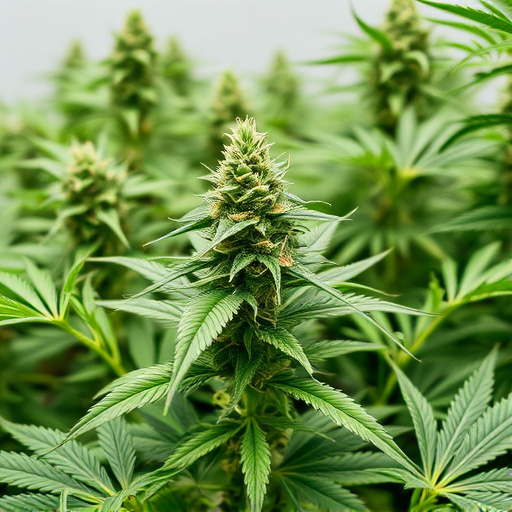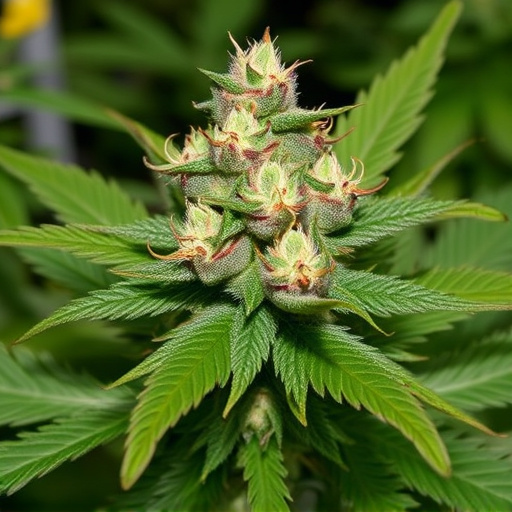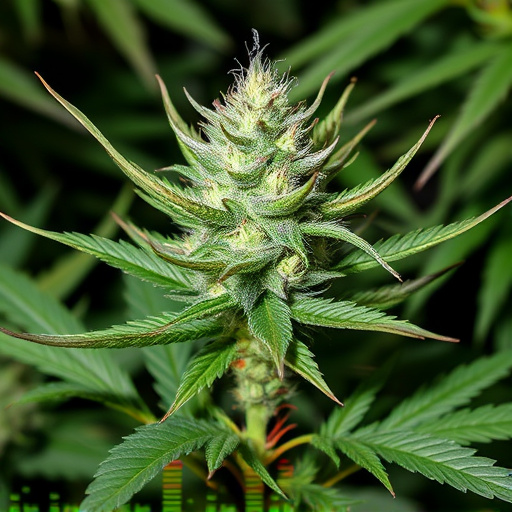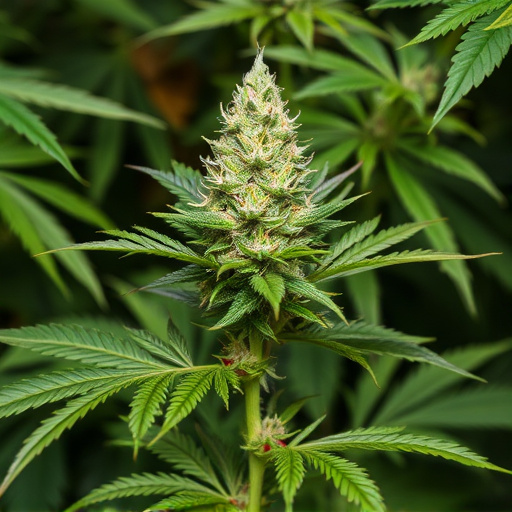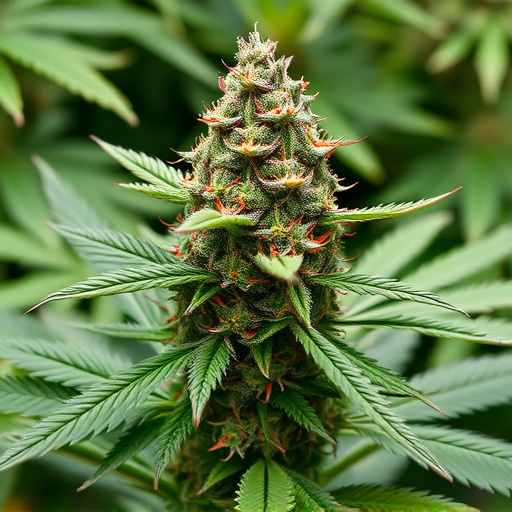Original strains of cannabis containing THC significantly impact hunger hormones leptin and ghrelin, potentially leading to increased appetite and weight gain by reducing leptin sensitivity and stimulating ghrelin release. THC binds to endocannabinoid receptors, disrupting hunger cues and influencing dopamine and serotonin levels. Early research suggests these natural compounds could offer therapeutic benefits in managing eating disorders and supporting weight loss through their interaction with the endocannabinoid system.
“Unraveling the intricate relationship between THC and hunger hormones reveals a fascinating interplay that goes beyond mere snack cravings. This article explores how tetrahydrocannabinol (THC) influences appetite regulation, delving into the science behind hunger hormones and their interaction with the endocannabinoid system.
We’ll examine the effects of THC on neurotransmitters, dissecting its impact on hunger signals. Additionally, we’ll highlight the potential benefits and research surrounding original strains of cannabis, offering insights that could reshape our understanding of appetite management.”
- Understanding Hunger Hormones and Their Role in Appetite Regulation
- The Impact of THC on Neurotransmitters and Hunger Signals
- Original Strains of Cannabis: Potential Benefits and Research Findings
Understanding Hunger Hormones and Their Role in Appetite Regulation
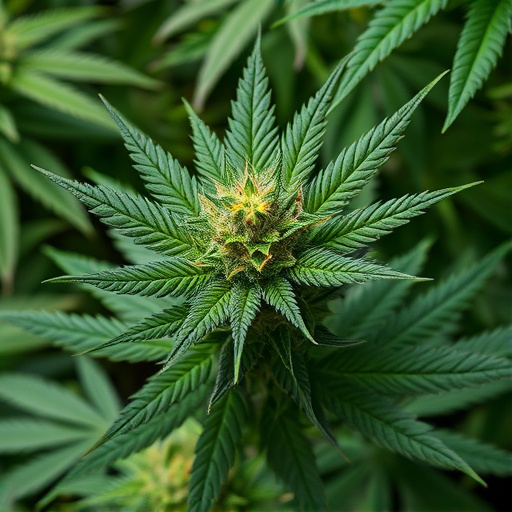
Our bodies have a complex system of hunger hormones that regulate appetite and energy balance, playing a crucial role in survival. The most well-known hunger hormone is leptin, which signals satiety to the brain, promoting feelings of fullness and reducing food intake. Conversely, ghrelin, often dubbed the “hunger hormone,” stimulates appetite and increases food desire when leptin levels drop. These hormones work together to maintain a delicate equilibrium, ensuring we eat enough to meet our energy needs without overeating.
Original strains of cannabis have been shown to interact with these hunger hormones. THC, the primary psychoactive compound in cannabis, can influence both leptin and ghrelin levels. Research suggests that THC may reduce leptin sensitivity, leading to increased feelings of hunger and potential weight gain. Conversely, it can also stimulate the release of ghrelin, enhancing appetite. Understanding this complex interplay offers insights into the effects of cannabis on eating behaviors and could hold potential for future research in appetite-related disorders.
The Impact of THC on Neurotransmitters and Hunger Signals
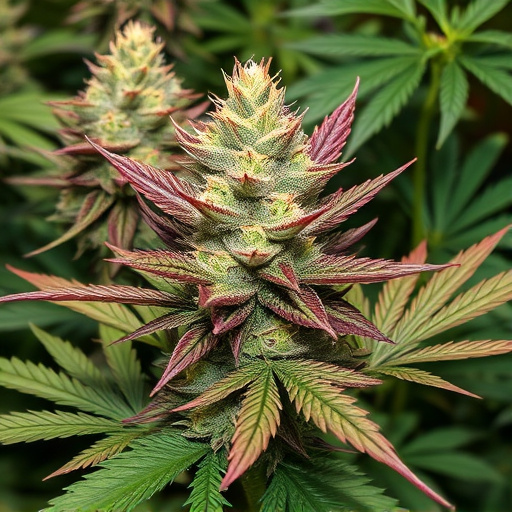
THC, or tetrahydrocannabinol, has a profound impact on the brain’s complex system of neurotransmitters and hunger signals. When an individual consumes original strains of cannabis containing THC, it interacts with endocannabinoid receptors located throughout the brain and body. These receptors play a significant role in regulating appetite, satiety, and overall food intake.
The binding of THC to these receptors can lead to a disruption in typical hunger cues. It influences the release of neurotransmitters like dopamine and serotonin, which are closely linked to pleasure, motivation, and eating behaviors. This interaction may result in increased feelings of hunger or changes in food preferences, often leading folks to crave specific types of treats. Understanding how THC interacts with these natural systems offers valuable insights into the effects of original cannabis strains on our relationship with food.
Original Strains of Cannabis: Potential Benefits and Research Findings
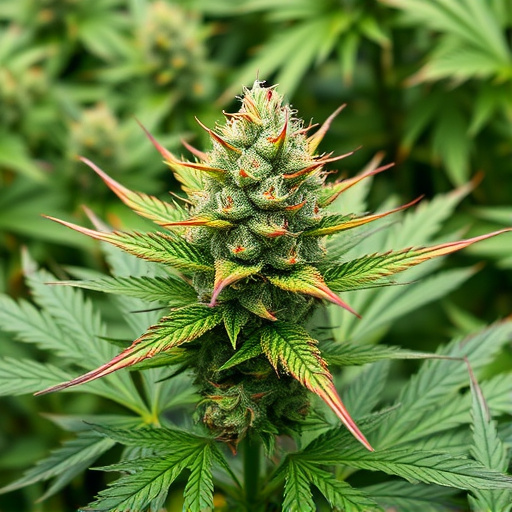
Original strains of cannabis have long been associated with various medicinal and therapeutic properties, including their potential to influence hunger hormones. Early research suggests that certain cannabinoids present in these natural compounds may interact with the endocannabinoid system (ECS), which plays a crucial role in regulating appetite. This interaction could lead to reduced food intake, making original strains of cannabis a subject of interest for both medical professionals and those seeking alternative solutions for weight management.
Studies have shown that specific terpenes and cannabinoids found in these original strains can modulate the activity of hormones like ghrelin, often referred to as the “hunger hormone.” When consumed, these natural compounds may help balance ghrelin levels, potentially leading to a decrease in appetite. Such findings point towards the promising applications of original cannabis strains in managing eating disorders and supporting individuals in their weight loss journeys, offering a more holistic approach to healthcare.
In understanding how THC affects hunger hormones, we’ve explored the intricate relationship between neurotransmitters and appetite regulation. The impact of THC on these systems offers insights into the potential benefits of original strains of cannabis in managing hunger-related conditions. Further research is essential to unlock the full scope of these effects, but current findings suggest that cannabis compounds could provide novel therapeutic avenues for those struggling with appetite disorders.


